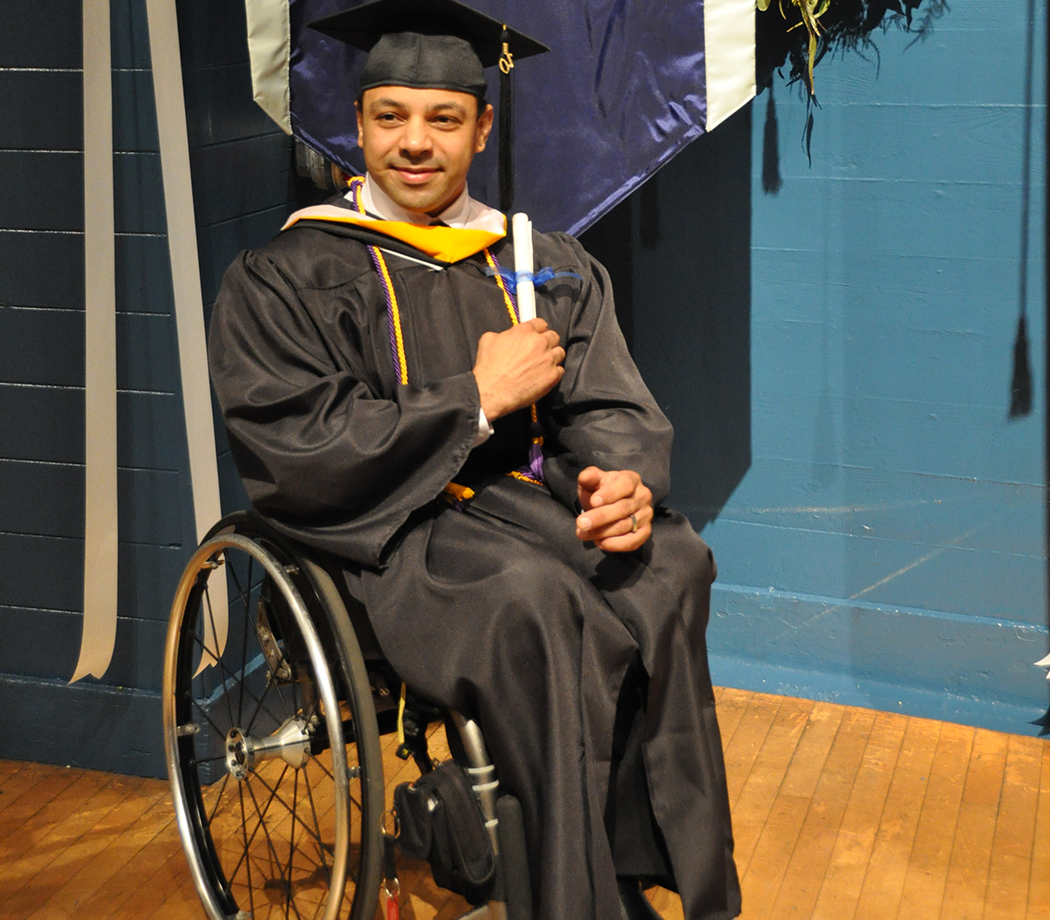Choosing a college to best fit your child’s needs
Preparing for the College Selection Process
High school seniors have a lot on their plate. In addition to class work and extracurricular activities, they also must prepare college admission applications ahead of fall and winter deadlines.
It can be a stressful time to be sure, so we lend some perspective for those families who may be completing the process in the coming weeks, or who anticipate conducting a college search in the near future.
Fulfilling a Dream
Ridgewood, New Jersey native Taylor Price’s dream was always to attend Georgetown University. But in the summer of 2004, six weeks before he was set to report for classes, he sustained a severe injury to his C5 vertebra during a diving accident on Long Island.
Taylor was intent on pursuing his dream, despite the injury that left him living with paralysis, and so he deferred for a year with the intent of still attending Georgetown. In the interim, he began intensive physical therapy to prepare his body for the rigors of college.
Also during that year, Taylor made a trip to Georgetown. As he cruised around campus in his power chair, he asked himself honestly: “Is it feasible to go to school here? Will all my personal needs be addressed?” After doing extensive research, and conversations with the Office of Disability Services, he decided that they would be, and so he enrolled. Now, Taylor has both a bachelor’s and a master’s degree to his name from the school.
“Georgetown became my home,” Taylor says, “a formative place that help shaped who I am. A place where I built many friendships. It was the next step in the continuation of my life journey, a door opener that has allowed me to pursue other things I might not otherwise have done.”
Looking back, Taylor offers a word of advice for others living with disabilities who have decided to venture into the world of higher education:
“Don’t hide out at school, you’re not so different from everyone else. All of us are dealing with some unique issues in our own lives. Be an active, engaged member of the university community. You’re an asset, and offer a diverse perspective that can be incredibly valuable to your classmates!”
Choosing a College to Best Fit Your Needs
Taylor’s process for determining if his school met all of his unique needs was unique in itself – he had already gone through the process of finding a school before he was injured.
Still, a major takeaway from his experience can be applied to all disabled students looking at schools:
Visit the campus beforehand whenever possible, to determine if all of your needs and concerns can be addressed.
Leslie Jablonski of Minneapolis, Minnesota concurs. When her son Jack was in the process of choosing a school they made sure to visit several campuses, where they investigated campus layouts, and spoke with campus disability services.
“Be sure to ask what experience a school has in working with your specific needs,” explains Leslie. “For example, have they ever had a student in a power chair, and what kind of care/ services were they able to provide for that student? You can really get a feel for a school in person, so I think it’s really important to do so if you can.”
Putting Together a Checklist
Michael Hoog, from Longmont, Colorado, has already been through the college selection process with his son Tyler, who is living with spinal cord injury, and is enrolled at the University of North Carolina Chapel Hill.
Michael and his family put together an extensive checklist thanks to their own experience in order to help guide others through the process.
First, investigate college considerations that all students will have, such as:
- Degree programs offered
- Admission requirements
- Size of school
- Geographic location
- Cost in-state vs. out-of-state
Think about disability-specific considerations, and address the specific needs of your student. For example:
- How is accessibility across campus; in dorms, classrooms, common areas and lecture halls?
- Are live-in caregivers allowed on campus and what might they cost?
- Is the weather conducive to your student’s needs?
- What offerings are available through the Office of Disability Services on campus?
- Are note takers and testing accommodations allowed?
- What are the rules regarding relocating courses if they’re scheduled in inaccessible locations?
- How does the office coordinate with campus entities such as dining, athletics, parking, and housing?
- What are healthcare services like in the state where your student will be going to school?
- Learn about the extensiveness of the state’s Medicaid program, vocational rehab programs, and the proximity of required physicians and other caregivers.
Lastly, as soon as you’ve made a decision on a school, begin your outreach to state services as soon as possible, if you need/want to take advantage of them. Your child will need to undergo a medical evaluation when he or she arrives, but letting Medicaid know ahead of time can help the state to locate a caregiver for you, or, begin the process of getting your own caregiver certified if they aren’t already.
Financial Aid
Leslie admits that what kept her up at night was “starting over” when it comes to Jack’s care away from home. “Here in Minnesota, everyone knows Jack, and everything is in place: from his physical therapist to his doctor to his transportation.”
It’s a nerve-racking reality for families of students with disabilities leaving home for the first time, and one that can be compounded by the growing costs of both education, and healthcare.
The silver lining is that there is financial aid out there, and many grants and scholarships are earmarked to help people with disabilities in particular.
Above all, be creative in thinking about how your student is unique – there is money out there for all kinds of individuals getting set to start their collegiate careers. Sometimes, scholarship funders are looking for students with very specific criteria.
FinAid
Financial Aid for Students with Disabilities is a good place to get started in your search. This award-winning site has grown into the most comprehensive source of student financial aid information, advice and tools – on or off the web.
Resources
Download our booklet Navigating and Transitioning to College with Paralysis.
The Numotion Foundation funds a scholarship program through UNCF for African-American students living with mobility-related disabilities. Click here to apply.



